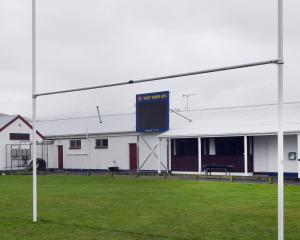Dr Chen, of the University of Central Oklahoma, in the United States, is a co-inventor of laser immunotherapy, a new method for treatment of metastatic cancers.
''We're very, very excited,'' he said in an interview in Dunedin this week.
''This may present an effective way to treat metastatic cancer.''
Metastatic cancer is cancer which has spread from a primary site to other parts of the body.
Such secondary growths had often proved a ''death sentence'' for patients, and many existing therapies had proved ineffective, he said.
He also gave a public lecture at the University of Otago Medical School yesterday on ''harnessing immune activities'' for cancer treatment.
Born in China, Dr Chen has since lived mainly in the United States.
He is also the co-inventor of glycated chitosan, a novel immunological stimulant, for cancer treatment.
In recent years his research team has been conducting clinical trials involving patients with late-stage melanoma and breast cancer, in the Bahamas and Peru. Several patients with metastatic cancer, and who had been expected to live only a few months, had since fully recovered and lived five years or longer.
Some tumours were targeted with laser therapy and also injected with an immunological stimulant, which boosted the treatment's effectiveness and helped kill secondary cancerous growths elsewhere in the body. Last year, he had a preliminary meeting with US Food and Drug Administration officials, he was undertaking animal tests for toxicity and was ''very hopeful'' of getting permission to start human clinical trials in the US and China.
The most important thing was not that laser immunotherapy killed tumour cells, but that once the immune system was fully activated, it could also ''prevent the tumour from growing in the future'', he said.
Dr Chen, a Fellow of the International Society for Optics and Photonics, has been at the Otago University physics department this week as a society visiting lecturer, after being invited by an Otago student chapter of the society, formed last year.
He planned to undertake collaborative research with Otago physicist Associate Prof Igor Meglinski, who is principal investigator in the Otago biophotonics and biomedical imaging research group.
Advertisement













